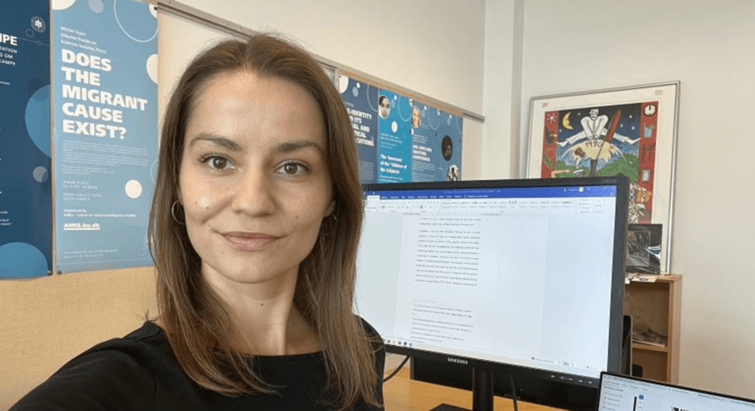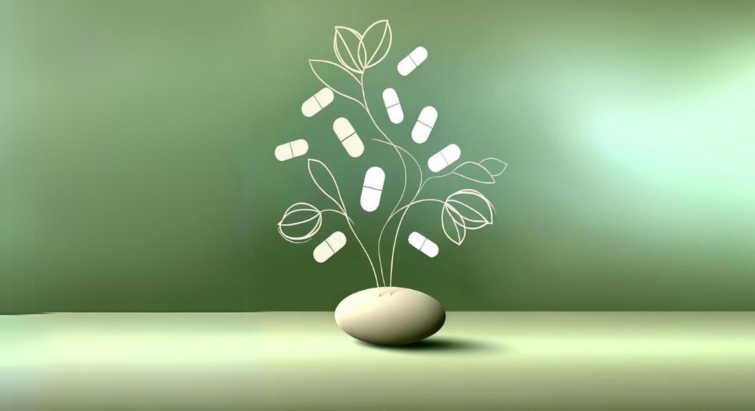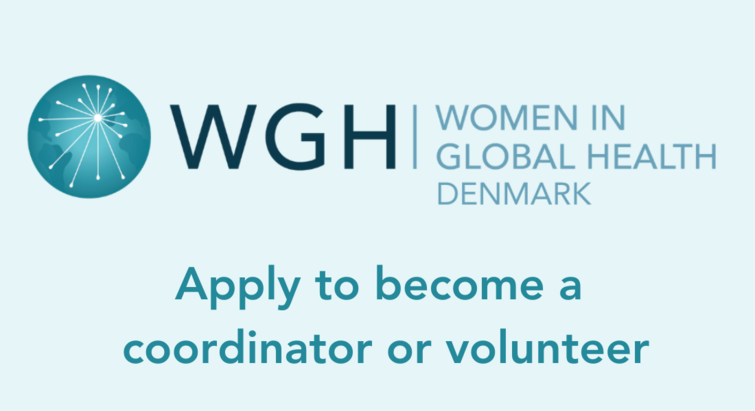
Building the car while driving it: South Africa’s response to COVID-19
South Africa had their first reported case of COVID-19 on March 5th and has since become the current epicentre of the pandemic in Africa, with more than 1,300 confirmed cases across the country’s nine provinces. On March 27th the South African government issued a full national lockdown resulting in most of the country’s 59 million people having to stay at home for three weeks – the most restrictive action taken on the African continent to contain the spread of the coronavirus.

Text: Eibhlin Caimbeul / Picture: Dewald van Niekerk
Dewald van Niekerk, Professor in Disaster Risk Reduction and the founder and director of the African Centre for Disaster Studies at North-West University in South Africa, gives an account of the current situation in South Africa by assessing the measures taken in order to contain the spread of the virus, as well as his perspective on what changes we might see in South African society when this is all over.
A national state of disaster
Since the first case was confirmed on 5th of March, the government has implemented a series of significant initiatives. For the first time in South African history, a national state of disaster has been declared in accordance with the Disaster Management Act 57 of 2002. It fundamentally gives full autonomy to the president to institute any necessary means in order to prevent further disaster.
It all began with the implementation of a number of directives aimed at introducing social distancing and other initial controls of transmission. It then escalated into a full national lockdown for 21 days starting on the 27th March and ending on 17 April, which is where the country finds itself now.
“Now the job is to ensure coordination between all levels of society. All other levels have to follow suit. That type of coordination is happening at a provincial and also sub-provincial level, which we call the district or metropolitan municipality levels. And then we have the district and metro disaster risk management centres, that are coordinating with the department of health” professor Dewald van Niekerk explains.
South Africa’s preparedness for a pandemic
Professor Dewald van Niekerk praises the governments decisiveness and significant strides during the course of this pandemic. Due to the unpredictability of this situation, he thinks the government is doing a good job in handling this crisis. As he puts it: “I can promise you, we haven’t – and I’m sure no other country has – thought of a pandemic of this nature.”
South Africa, in comparison to other countries, is in a fairly good position to tackle this pandemic due to the institutional memory of dealing with other epidemics of communicable diseases such as HIV and AIDS over the past decade. They have obtained both technical skills and scientific knowledge of pandemics and zoonotic diseases.
With that said, the nature of this pandemic demands a very different approach given the short time frame: “I think we’re kind of building the car as we’re driving it, trying to figure out our next steps, what the possible scenarios that can play out are, and what we should be doing”, van Niekerk explains.
As is the case for many countries around the world, the resources available for intensive care if this escalates are not nearly enough in South Africa. That being said, van Niekerk points to the fact that quite a few private health care providers are contributing, research initiatives are occurring and networks of health professionals, for the government to tap in to, are being established: “In that sense, we do have quite a lot of resources” he notes. Immediately after, he adds: “Looking at the projections, I hope it is not too little too late”.
“This thing is going to become really big and really bad in South Africa”
At the current stage, the biggest concerns in South Africa are the people who are already immunocompromised due to pre-existing conditions such as HIV, AIDS, tuberculosis, diabetes, hypertension etc. and poor people who are living in squatter camps or dense settlements.
“If this is transmitted within one of our settlements where people do not even have three or four meters between their dwellings, we’re going to sit with a major problem. People haven’t got access to basic sanitation and water. In a region with sometimes a hundred families they have access to only one communal tap. So, the disaster risk managers are saying that, this thing is going to become really big and really bad in South Africa.”
What also concerns van Niekerk, is the portion of society who are still in denial, not believing that this a concern relevant for them. “People say it’s a white man’s disease or it’s a disease of the tourists. This results in them taking uninformed decisions by not self-isolating when sick or not obeying to the lockdown rules etc.”
The economy has taken a huge knock
van Niekerk points to South Africa having already lost “in a line of 200 billion Rand”, the equivalent of almost 11 billion USD.
He foresees businesses shutting down and unemployment rates surging despite the rescue packages provided by the government and banks. “I can’t see them carrying on” he says, referring to the micro, small and medium sized enterprises.
“It doesn’t exactly look to grand at this point, but I reckon it doesn’t look that well anywhere else in the world” he concludes.
The crisis as a root for change?
On the other hand, he adds, that this may be an opportunity for change: “The South African economy has really gone down the tubes the past 20 years. Maybe we needed this economically, so that people can wake up and actually change the system” he adds, whilst pointing to inequality as a characteristic of the current system.
He also points out, that it has already changed the general perception of the decision-making ability of the government: “I think what they’ve now realised politically, is that there are people in decision-making positions who can make decisions that change things very quickly.”
Not only has it affected the perception of the political system, but it has also changed people’s social activities and of interaction with each other. As seen elsewhere, people are working from home, teaching and communicating with friends and family using online platforms. And so is the case in South Africa: “It is quite amazing how people have adapted so quickly”, van Niekerk says, after explaining the many new virtual ways of socialising already going on.
The African COVID-19 response has been more proactive
Carefully commenting on behalf of Africa as the huge and complex continent it is, van Niekerk points at essential lessons learned from the Ebola outbreak in the Western African States and HIV and AIDS in the rest of Sub-Saharan Africa giving Africa experience to draw upon.
Fearing that the same affects seen in some European countries would hit Africa, van Niekerk notes that African countries have seen to be way more proactive in dealing with the situation in comparison with Asia and Europe. “Many African countries have gone into lockdown, closed the borders, stopped all international traffic”, he adds. Also noting that the African countries have “learnt a lot from what happened in Europe and Asia”. Still keeping in mind that it would be disastrous if the same happened in Africa: “it goes without saying that many countries do not have that infrastructure. So, if it affects us the way it has affected some of the European countries, we’re going to have a major problem.” On an optimistic note, he concludes: “I think we’re better ahead of the curve”.
International aid for Africa? Traditional donors have their own problems now
Before commenting on the anticipated needs of Africa in the foreseeable future, van Niekerk explains that relying on assistance from the international community through the usual supply chain is difficult: “The traditional donors and development partners have got issues of their own. They’re going to be focussed internally before they can worry about Africa and our health care systems”. He comfortingly adds: “We’ve got enough skills, enough knowledge. We must now think how to use our resources innovatively to deal with this crisis.”
That said, African countries will be in need of material resources such as ventilators etc. Furthermore, many countries’ economies will be struggling and need some kind of boost, he elaborates. But at this stage, he points to sharing of expertise, as the way to go. “Especially what we can learn from other countries that are ahead of us”.
A glimpse of hope during lockdown
Lastly, Professor Dewald van Niekerk shared a story that had spread hope among people in light of the newly imposed national lockdown.
On March 29th a group of 112 students, who had been repatriated from Wuhan in China followed by a 14-day quarantine back in rural South Africa, were given the green light to head home.
“They were seen as the hope for South Africa” as van Niekerk expressed it. “These people were in Wuhan for 50 days, they were isolated, they were part of this burning issue out there”.
In light of seeing how the students had managed the situation, it seemed a lot less burdensome having to live through their own three-week lockdown: “In the midst of this major pandemic a lot of people found their hope in a few students, that went through a much more horrible period than we’re going through now”.
News


Health data storage has a climate cost. In the future data may be stored in DNA

Waste products could innovate pharmaceutical material design

